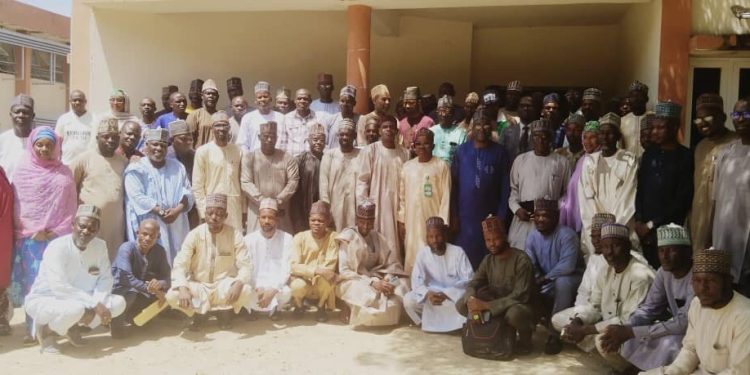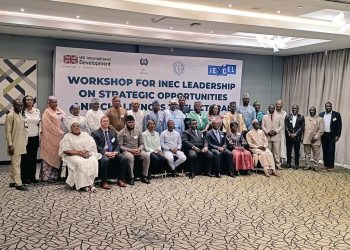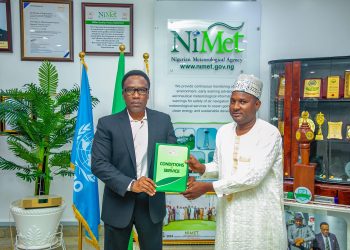…as Dr. Dabban Reassures Colleges, Institutes of Renewed Support
By Nkechi Eze
The Executive Secretary of the Agricultural Research Council of Nigeria (ARCN), Dr. Abubakar Adamu Dabban, has reaffirmed the Council’s commitment to addressing the challenges confronting Nigeria’s agricultural research institutes and federal colleges of agriculture.
In an official statement signed by Khadijat O. Ameen, Head of Public Relations, ARCN, Dr. Dabban made the pledge during a working visit to the Federal College of Freshwater Fisheries Technology, Baga, Maiduguri, and the Lake Chad Research Institute, Maiduguri.
During the visit, Dr. Dabban charged the Federal Colleges of Agriculture (FCAs) across the country to redouble their efforts in training, research, and extension services in line with the Federal Government’s food security agenda. He commended the management and staff of the institutions for their resilience and commitment despite the challenges facing the agricultural education and research sector.
He emphasized that the colleges remain a vital component of Nigeria’s agricultural ecosystem, contributing significantly to the advancement of the mandate of the ARCN and the Federal Ministry of Agriculture and Food Security. According to him, agriculture remains a major driver of the nation’s economy, with even greater expectations under the Renewed Hope Agenda and the recently declared emergency on food security.
“We must strengthen research, training, and extension to fast-track innovation, boost productivity, and help Nigeria achieve the Sustainable Development Goals (SDGs) by 2030,” Dr. Dabban stated.
The ARCN boss further disclosed that the Council is engaging the Tertiary Education Trust Fund (TETFund) to ensure that the agricultural research subsector fully benefits from its intervention programmes. He revealed that the Council has also re-initiated the review of the Conditions and Schemes of Service for the National Agricultural Research Institutes (NARIs) and the Federal Colleges of Agriculture (FCAs) in collaboration with the Office of the Head of Civil Service of the Federation. The review, he noted, aims to enhance staff welfare, institutional productivity, and the overall performance of the agricultural research system.
He explained that ongoing reforms within ARCN include strengthening its Monitoring and Evaluation system, updating management guidelines for NARIs and FCAs, and advocating for improved laboratories, workshops, and infrastructure across agricultural institutions. Dr. Dabban directed the FCAs to ensure timely submission of annual budgets, quarterly and annual reports, maintain proper communication channels with the Council, and provide updated staff nominal rolls annually. He also instructed them to submit lists of staff due for promotion with relevant documentation ahead of examination schedules and forward new research technologies developed to the Council for system-wide updates.
The Executive Secretary further urged the colleges to accord due respect to ARCN officials on official assignments and to continue fostering collaboration, discipline, and innovation in their operations. “Our collective responsibility is to ensure agriculture drives growth, creates jobs, and guarantees food security for our nation,” he said.
Dr. Dabban also took time to clarify the ongoing process of reviewing the Conditions of Service, assuring the institutions that the exercise will produce separate, detailed frameworks tailored for the colleges and the research institutes to ensure fairness and efficiency.
In their separate remarks, the Provost of the Federal College of Freshwater Fisheries Technology, Baga, Maiduguri, Professor Modu Bako, and the Executive Director of the Lake Chad Research Institute, Professor Babagana Jubrin, expressed appreciation to the Executive Secretary for his visit and for the Council’s continued support. They highlighted some of the achievements recorded by their respective institutions and appealed to Dr. Dabban to help facilitate the return of TETFund and other intervention supports for federal colleges and research institutes of agriculture.
Both leaders reiterated their commitment to sustaining academic excellence, research innovation, and extension services that align with national agricultural transformation goals. Their appeal underscored the urgent need for infrastructure upgrades, enhanced research funding, and capacity development to strengthen Nigeria’s agricultural research system and ensure its sustainability.
With Dr. Dabban’s renewed assurance and the Council’s reform initiatives, stakeholders in the agricultural education and research sub-sector expressed optimism that the ARCN is charting a new course toward repositioning Nigeria’s agricultural institutions for greater national impact.
















